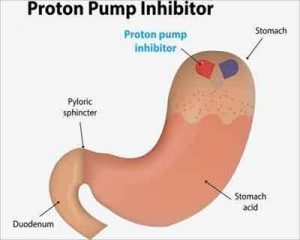- Home
- Editorial
- News
- Practice Guidelines
- Anesthesiology Guidelines
- Cancer Guidelines
- Cardiac Sciences Guidelines
- Critical Care Guidelines
- Dentistry Guidelines
- Dermatology Guidelines
- Diabetes and Endo Guidelines
- Diagnostics Guidelines
- ENT Guidelines
- Featured Practice Guidelines
- Gastroenterology Guidelines
- Geriatrics Guidelines
- Medicine Guidelines
- Nephrology Guidelines
- Neurosciences Guidelines
- Obs and Gynae Guidelines
- Ophthalmology Guidelines
- Orthopaedics Guidelines
- Paediatrics Guidelines
- Psychiatry Guidelines
- Pulmonology Guidelines
- Radiology Guidelines
- Surgery Guidelines
- Urology Guidelines
PPIs combined with oral anticoagulants reduce risk of GI bleeding : JAMA

Patients at increased risk of gastrointestinal bleeding can be prominently protected from such risk by taking proton pump inhibitor (PPI) in combination with an oral anticoagulant.
The study published in JAMA has reported that for each anticoagulant, the incidence of hospitalization for upper gastrointestinal tract bleeding was lower among patients who received PPI co-therapy.
Oral anticoagulants are predominantly used for patients with an irregular heart rate called atrial fibrillation, prosthetic heart valves and those with or at risk for deep vein thrombosis and cardiovascular diseases bur oral anticoagulant may lead to significant bleeding, particularly upper gastrointestinal bleeding.
PPIs, which reduce gastric acid production, promote ulcer healing, and prevent ulcer recurrence could affect the relative safety of oral anticoagulants, particularly in high-risk patients.
Read Also: Hemospray stops GI bleeding in 95% of patients within five minutes
Wayne A. Ray and associates conducted a retrospective cohort study in Medicare beneficiaries between January 1, 2011, and September 30, 2015, to compare the incidence of hospitalization for upper gastrointestinal tract bleeding in patients using individual anticoagulants with and without PPI co-therapy, and to determine variation according to underlying gastrointestinal bleeding risk.
“We undertook this study to clarify what can be done to reduce upper gastrointestinal bleeding risk. We had three questions: what is the role of PPIs in reducing this risk, how do the newer oral anticoagulants differ in terms of the risk of this side effect and how do those factors change when you look at individuals already at higher risk for gastrointestinal bleeding? Those at higher risk would be those who have a history of ulcer disease, as well as individuals using other medications that increase bleeding risk," said lead author Wayne Ray, Ph.D., professor of Health Policy at VUMC.
Read Also: Proton pump inhibitors (PPIs) linked to chronic kidney disease and kidney failure
Patients were categorized based on those who also received PPIs and those who did not take PPIs. The team also compared the incidence of hospitalizations for this reason between four oral anticoagulant medications: apixaban, dabigatran and rivaroxaban, and warfarin.
The investigators found that among patients receiving oral anticoagulants, the incidence of hospitalization for upper gastrointestinal bleeding was the highest for those taking rivaroxaban and lowest for apixaban. For each anticoagulant, the incidence was lower among patients who also received PPI co-therapy.
The findings indicate the potential benefits of a gastrointestinal bleeding risk assessment before initiating anticoagulant treatment.
For full information log on to https://jamanetwork.com/journals/jama/fullarticle/2717474

Disclaimer: This site is primarily intended for healthcare professionals. Any content/information on this website does not replace the advice of medical and/or health professionals and should not be construed as medical/diagnostic advice/endorsement or prescription. Use of this site is subject to our terms of use, privacy policy, advertisement policy. © 2020 Minerva Medical Treatment Pvt Ltd